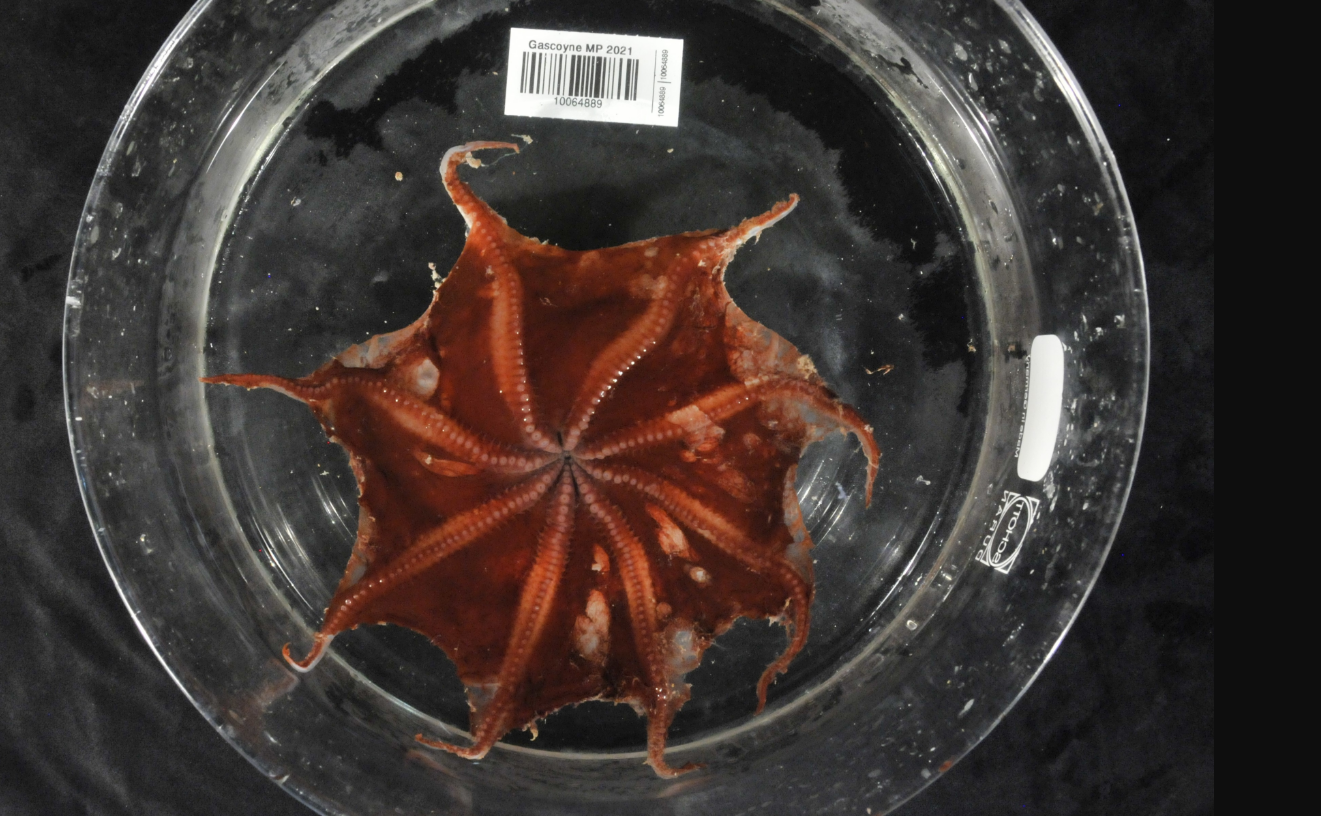This newly discovered species of octopus is a deep-sea shapeshifter with large eyes and blood-red tentacles. Sounds terrifying? Don’t fret: these strange little guys are smaller than a golf ball.
Measuring just 4 centimeters (around 1.5 inches) across, the species has been named the Carnarvon flapjack octopus (Opisthoteuthis carnarvonensis), a nod to its discovery in the deep waters of Carnarvon Canyon Marine Park off the coast of Western Australia.
Along with its deep red tentacles, a defining feature of the octopus is its large eyes, used to enhance its ability to hunt down worms and tiny crustacean prey in the scarcely lit depths that it inhabits.
It was found between 1,044 and 1,510 meters (3,425-4,954 feet) beneath the surface, just at the edge of the ocean’s “midnight zone” where sunlight no longer penetrates. This part of the sea accounts for 70 percent of all seawater and is the single largest habitat on the planet, yet it largely remains a mystery because of its remote location and extreme conditions.
The flapjack octopus was identified along with a bunch of other specimens during a voyage in 2022 by research vessel (RV) Investigator, led by CSIRO, the scientific research agency of the Australian government.

Ignore the barcode, it isn’t for sale: bottom view of the Carnarvon flapjack octopus.
Image credit: © Cindy Bessey, CSIRO
Using cameras, specialized nets, and deep-sea sleds, scientists ventured thousands of meters beneath the ocean’s surface to gather samples and capture imagery. These cutting-edge explorations yielded a trove of specimens, many of which may represent species never before documented by science.
There are many species of flapjack octopus in the world’s oceans, characterized by their ability to flatten their body to resemble a pancake – or flapjack, as the Americans like to say, apparently – or plump themselves up to look like a gelatinous candy. They are part of a broad group known as “dumbo octopus”, of which there are approximately 50 described species worldwide, including at least 15 species recorded in Australian waters.
“Dumbo octopus are a rare and unusual species that live on the seafloor. They reproduce and grow slowly, are very soft and gelatinous, and, unlike other octopus, they produce no ink and cannot change colour,” Dr Tristan Verhoeff, volunteer Systematic Taxonomist at the Tasmanian Museum and Art Gallery, said in a statement.
The Carnarvon flapjack octopus may only be minuscule in size, but its discovery could help to make the case that the waters of Western Australia need better protection.
“Australia has a higher biodiversity of dumbo octopus species compared to other countries but many of these species have only been recorded or described in the past few years. The Carnarvon Flapjack Octopus, which was named for the location where it was found, is only known from the Carnarvon Canyon and Gascoyne Marine Parks off northwestern Australia. Its presence adds extra value to these recently established marine parks,” added Verhoeff.
Elsewhere in the ocean, scientists have recently discovered several new cephalopods. Among the most groundbreaking was the first-ever confirmed footage of a live colossal squid. It was only a baby, but the moment marked the end of a search more than a century in the making.
The new study is published in the Australian Journal of Taxonomy.
Source Link: New Species Of Flapjack Octopus, A Shape-Shifting Cephalopod Of The Deep, Found In Australia